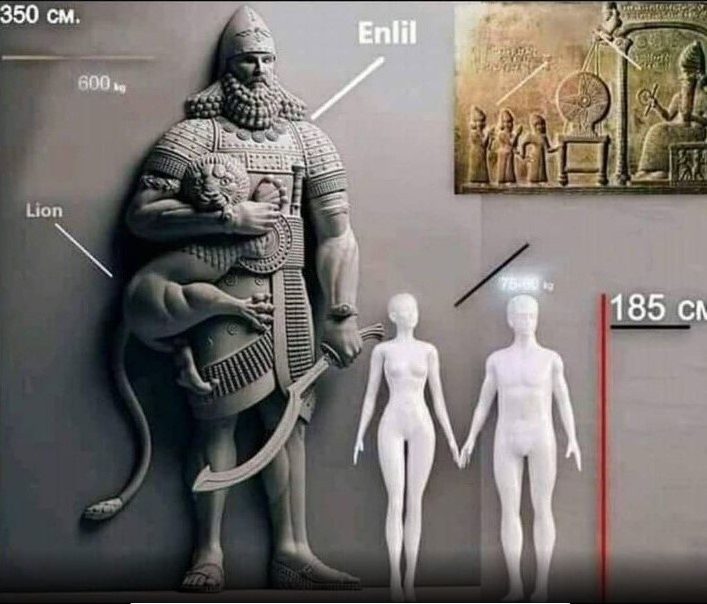Among the ancient legends that have stood the test of time, few are as compelling as the tale of King Gilgamesh. Known for his extraordinary power and epic adventures, Gilgamesh is said to be a unique blend of human blood and divine essence from the Anunnaki gods, who purportedly hail from a distant galaxy. This article delves into the enigmatic figure of Gilgamesh, exploring the fascinating hypothesis of his extraterrestrial heritage and its implications for our understanding of ancient history and mythology.

The Epic of Gilgamesh: The story of Gilgamesh is chronicled in one of the oldest known literary works, the Epic of Gilgamesh, dating back to ancient Mesopotamia around 2100 BCE. The epic portrays Gilgamesh as a formidable king of Uruk, renowned for his strength, wisdom, and semi-divine lineage. According to the text, Gilgamesh was two-thirds god and one-third human, a combination that granted him extraordinary abilities and a larger-than-life persona.

The Anunnaki Connection: The Anunnaki are a group of deities in ancient Mesopotamian mythology, often associated with creation and governance of the cosmos. According to some interpretations of Sumerian texts, the Anunnaki were extraterrestrial beings who came to Earth from a distant planet or galaxy. These gods are said to have possessed advanced knowledge and technology, which they imparted to early human civilizations, playing a crucial role in shaping humanity’s development.
The Hybrid Theory: The notion that Gilgamesh could be a hybrid of human and Anunnaki origin stems from his described lineage and attributes. His mother, the goddess Ninsun, was a revered deity, while his father, Lugalbanda, was a mortal king. This union, according to ancient texts, resulted in Gilgamesh’s exceptional abilities and near-divine status. Proponents of the ancient astronaut theory suggest that the Anunnaki’s genetic manipulation or interbreeding with humans could explain Gilgamesh’s unique composition.
Extraordinary Abilities: Gilgamesh’s epic tales highlight his superhuman strength, intelligence, and endurance. He is described as a warrior who could defeat mighty beasts, a king who could command the respect and loyalty of his people, and a seeker of eternal life who ventured into the unknown. These extraordinary feats and attributes are often cited as evidence of his Anunnaki heritage, suggesting that his abilities were beyond the scope of ordinary humans.
Implications for Ancient History: The idea that Gilgamesh was part Anunnaki invites a re-examination of ancient history and mythology. If the Anunnaki were indeed extraterrestrial beings who interacted with early human societies, it could provide a new perspective on the origins of civilization, technological advancements, and the mythological stories that have been passed down through generations. This theory challenges conventional interpretations of ancient texts, proposing that many myths may be rooted in actual historical events involving otherworldly beings.
The legend of King Gilgamesh, with his extraordinary powers and divine lineage, continues to captivate scholars and enthusiasts alike. The possibility that he was a hybrid of human and Anunnaki descent offers a fascinating lens through which to explore ancient history and mythology. While the hybrid theory remains speculative, it underscores the enduring allure of Gilgamesh’s story and the mysteries of humanity’s past. As we continue to uncover and interpret ancient texts and artifacts, the tale of Gilgamesh reminds us of the rich tapestry of human imagination and the potential connections between our world and the cosmos beyond.

